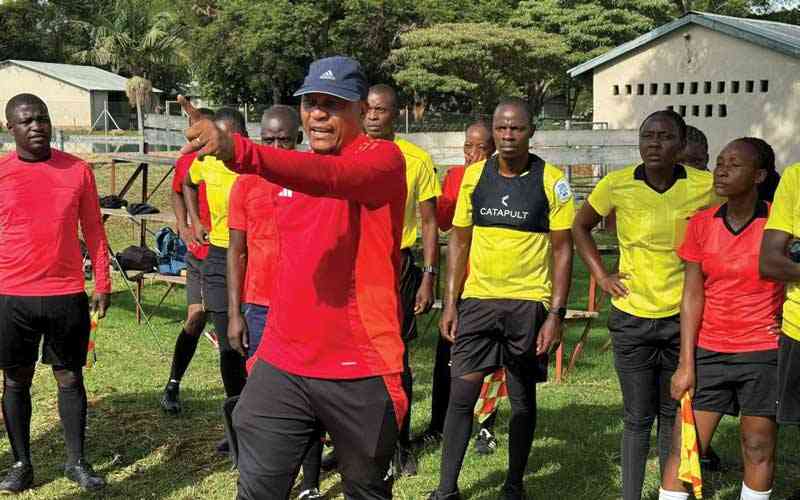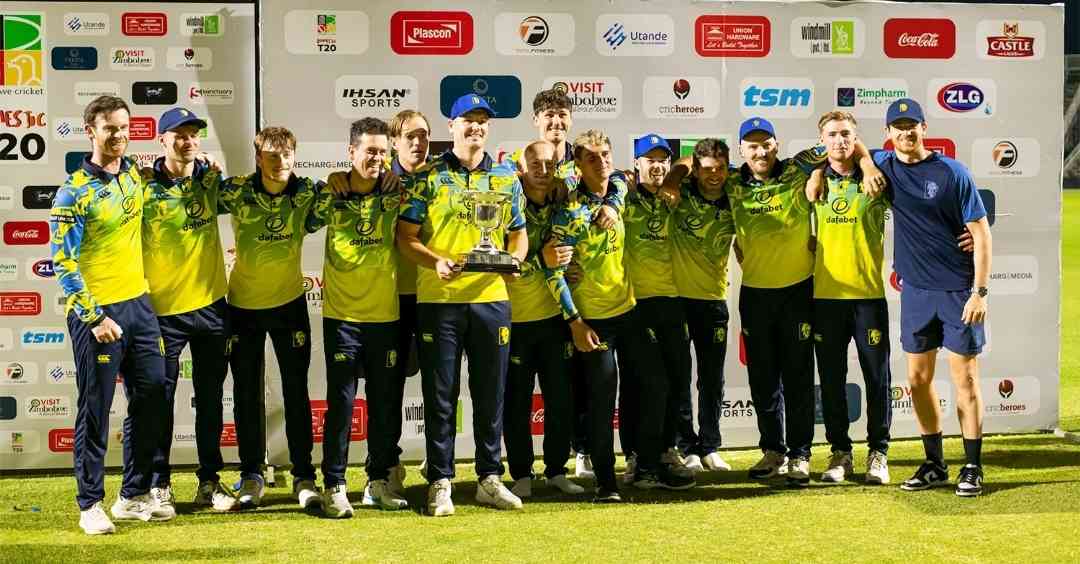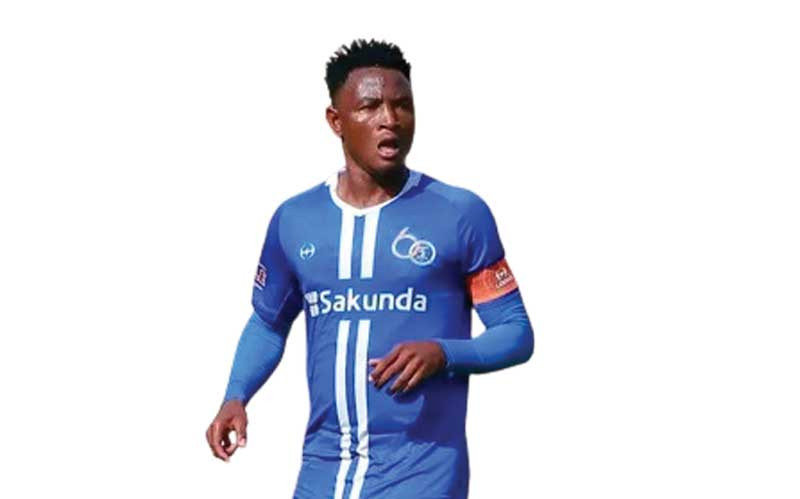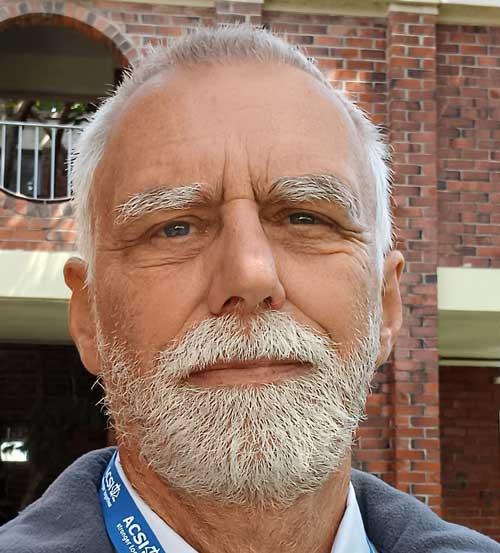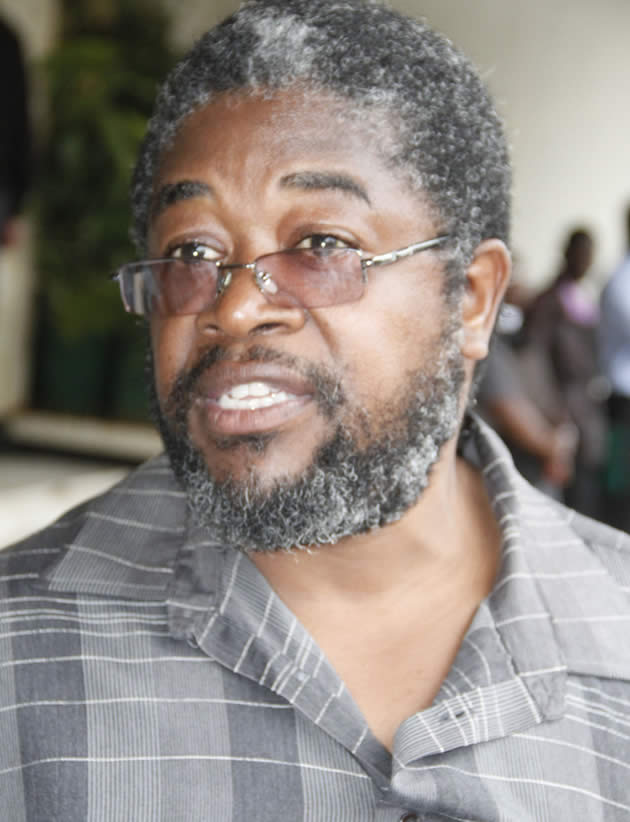
Once a formidable force and one of the most feared football teams locally and regionally, Highlanders Football Club appears to be heading for the cemetery.
By Brian Nkiwane and Thandiwe Moyo
Zimbabwe’s oldest football team’s downward spiral has gone out of control, with the club becoming everyone’s punching bag.
Not too long ago, which club or coach would not shiver with dread at the prospect of meeting Tshilamoya?
However, in the last decade Bosso’s reputation has been torn apart by even the minnows of local football. Small teams take turns to humiliate the yesteryear giants — even in their own backyard!
Barbourfields Stadium was once a formidable fortress for the boys in black and white where teams went for brutal slaughter.
The most exciting times at Highlanders came at the turn of the century when former player Rahman Gumbo assembled a killing machine that comprised players like Zenzo “Zemura” Moyo, Thabani “Mqwayi” Masawi, Sizabantu Khoza, Thulani “Biya” Ncube, Dazzy Kapenya, Gift Lunga Junior and Amon Chimbalanga.
This was the time Bosso would make the Premier Soccer League and Zifa smile all the way to the bank each time they played because of their legion of fans who would flock to watch their boys in action. The support base was then dubbed the “Bossolona Road Show”.
- Chamisa under fire over US$120K donation
- Mavhunga puts DeMbare into Chibuku quarterfinals
- Pension funds bet on Cabora Bassa oilfields
- Councils defy govt fire tender directive
Keep Reading
The club would contribute close to 50% of the total income during those success years, while other clubs’ combined effort yielded the remaining 50%.
The high-flying Bosso at one time formed the core of the national team.
Under Gumbo, the team won four championships from 1999 to 2002 after which they struggled for four years, finishing as runners up. A resurgent Bosso however reclaimed the championship in 2006, under the guidance of another former player, Methembe Ndlovu.
An in-depth research has revealed that the demise of the country’s oldest club — which was founded in 1926 — could be a result of several factors.
First and foremost, the structure of leadership at the club has created two centres of power which have seen the Bosso running without a proper vision.
The club, led by the board of directors, amended the club’s constitution at its 2006 Annual General Meeting (AGM). The amendment was meant to “empower” the board of directors, itself a purely advisory body, giving it the power to direct operations at the team.
The powers of the executive committee remained the same, leaving the board with powers to approve the budget. The new constitution also created a position of chief executive officer.
The roles and responsibilities of the CEO and those of the secretary general remain unclear, with the CEO as head of administration reporting to the board chairman. The Bosso constitution states that the secretary general is head of administration.
The two centres of power — the board and the executive committee — have proved to be stumbling blocks to progress at Bosso.
The structure is top-heavy with 15 board members and five executive members supporting a CEO and two junior employees. To make matters worse, members of the board and members of the executive committee constitute the standing committee.
The coming in of BancABC as Highlanders chief sponsor was a positive development as over $2,5 million has been poured into the club’s coffers in the past five years.
The problem began when it became apparent that the Bosso leadership had become over-reliant on their sponsor. They began to depend more and more on buying players as opposed to utilising the homegrown junior policy that has served them so well in the past.
Since BancABC came on board, all the junior developmental projects were thrown out as they went on a rampage to buy players —including some that were completely devoid of the club’s philosophy.
The Highlanders that had the likes of Peter Ndlovu, his two elder brothers Mandinda and Adam, the late Willard “Mashinkila” Khumalo, Mercedes “Rambo” Sibanda had come a long away in terms of developing the junior policy.
The million-dollar question is: Why have Bosso abandoned the junior policy?
A Highlanders junior development project that was destined for success was left to die a natural death with players joining city rival academies like the now defunct Amazulu, Chicken Inn and Bantu Rovers.
Bantu Rovers gained the most from Highlanders as they gave the young players not only hope to play overseas, but an education as well. Some of the players that Highlanders lost include Kudakwashe Mahachi, Lawrence Mhlanga and Devine Lunga.
Highlanders chairman Peter Dube, who was voted into the executive taking over from Themba Ndlela in 2012, seemingly did not believe in the junior policy as his executive has not produced any marketable player from their junior structures.
After complaints that the junior policy had not served much purpose in the preceding years, Dube claimed they had been doing well this year.
Matabeleland North Highlanders’ supporters chapter chairman, Morgan “Gazza” Dube said the major problem at the club was that they had deviated from “breeding” their own players.
He said the club had lost sight by not producing their own players and this had given room to players who did not have Highlanders at heart to filter in.
He said supporters had also lost patience.
“If we as supporters respect the powers that are put in place, we could turn around things at the club,” he said. The hiring and firing of coaches is also another reason for Highlanders’ change of fortunes. The Bosso executive has hired and fired eight coaches in nine years.
Reuben Tsengwa replaced Methembe, before he was also shown the exit door for Egyptian mentor Mohamed Fatty, who worked with Mkhuphali Masuku. Fatty did not last any distance as he was also shown the exit door for Masuku to take over as head coach. But at beginning of a new season, the Bosso executive could not trust Masuku who had managed to win the remaining 12 games. He even won them the Independence Trophy against Dynamos through a penalty shootout in Harare. But they still kicked him out and brought in Zambian born Kelvin “KK” Kaindu who was not new to the club as he once had a short stint with the Bulawayo giants during his playing days.
Kaindu could not meet the targets and was replaced by his assistant Mark Mathe who was not retained at the beginning of this season. Bosso then went for the learned Bongani Mafu who they parted ways with last Thursday, bringing back Cosmos “Tsano” Zulu to take over.
This was despite the fact that most Bosso fans felt Mafu was building a good team for the upcoming season.

